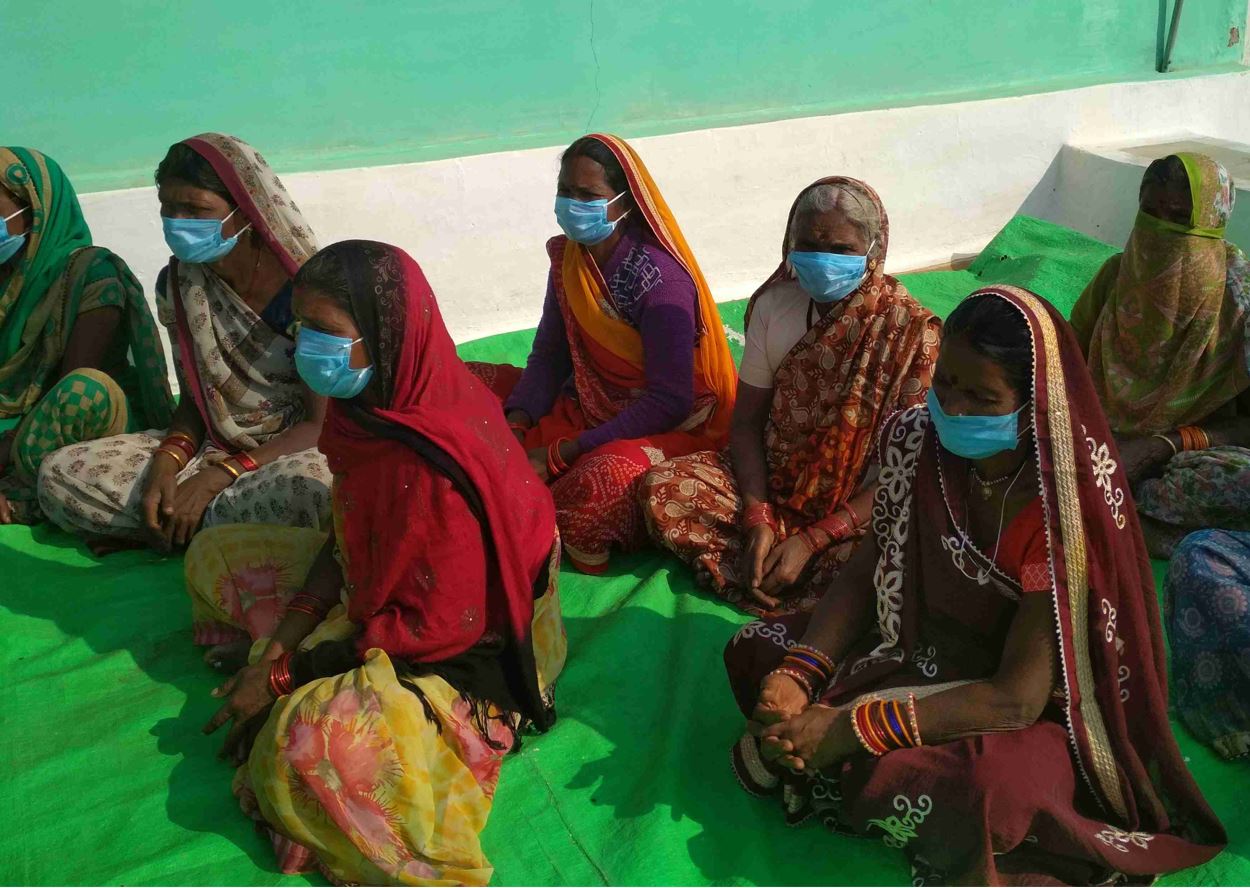In the last 18 months, COVID-19 has disproportionately impacted lives and livelihoods across rural India. A report suggests that rural communities are eating less and often not able to afford nutritious food like pulses and vegetables. In Madhya Pradesh’s Chhindwara district, a unique initiative taken by women from 12 villages is not only helping communities fight hunger but generate income by turning barren land into a nutritious food garden.
These 12 villages comprise mostly of the tribal population who, despite depending on agriculture for their sustenance, are listed among the most vulnerable in terms of food and nutrition security. Lack of guidance and resources doesn’t allow them to effectively utilise their land and earn revenue from it. Due to extreme poverty and lack of livelihood opportunities in villages, they are pushed towards migration.
The Poshan Vatika Initiative

The nation-wide lockdown imposed during the first wave of the pandemic had led to mass exodus of migrant workers. As a result, rural households suffered losses in incomes, pushing many deeper into poverty, indebtedness and hunger. Seeing no alternative to generate income, coordinators of Prabhat Jal Sarakshan Yojana—a project led by a non-government organisation (NGO) in the region—started providing guidance and basic training to women belonging to Mendki Tal village in Madhya Pradesh’s Chhindwara district to establish the community Poshan Vatika (Nutrition Garden) as a pilot project.
On 1,600 square feet of land, they started growing different fruits and green vegetables like spinach, fenugreek, radish, tomato, eggplant, cabbage, cauliflower, ginger, coriander, chili gourd, cucumber, pumpkin, fruits, papaya, lemon and guava. Within three months, the women’s hard work paid off, and this attracted women from 11 more villages to join the initiative. After receiving similar training, they formed groups and started cultivating available land together.
Today, 144 women are running this initiative, which has served as a helpful tool for the village women to generate additional income.
Moving Towards Self-reliance

The journey of Community Poshan Vatika began on the land of Savita Kusram, a farmer from Mendki Tal. Her land, once uneven, now feeds many. “Our women farmer’s group agreed to start the pilot project on my land. They decided to pay me Rs 10,000 annually for the land. We received seeds and manure from the coordinators as part of the project. In the first phase, under the supervision of the coordinators, circles were marked for the plants in such a manner that 6,000 saplings could be planted,” shares Savita. She also explained how a clear path was defined to ensure ease of removing the weeds and maintaining these plants. Besides, scaffolding was installed for vines and a compost pit was dug for organic manure. One corner of the land was also reserved for a nursery.
“I had never eaten so many vegetables as I have in the last six months,” begins Ratniya Kusram, who had come to Mendki Tal 35 years ago after her marriage.
She adds, “When we migrated for livelihood, we never ate a full meal. It feels good to see our families eat nutritious food. This initiative has also ensured good health of pregnant women and children in our village. This is the result of sheer dedication and hard work our group has put together in the last few months.”
Reflecting on how everyone was sitting idle during the lockdown, Ratniya proudly informs that it was the women who took the responsibility of sustaining their households. Farming was the only option left. “As all of us worked together on this project, we never felt exhausted. In fact, it was quite entertaining to work with fellow women. It increased our work efficiency and understanding between the group members,” says Ratniya, smilingly.
Migrating for work helped in their daily survival but never allowed them to save money. On the other hand, as they spent most of their time in towns and cities, their agricultural land was turning infertile. “This initiative has not only helped our families fight hunger and malnutrition but has helped us earn our livelihood during the most crucial time. Besides, we have also managed to save some money. If things keep going as planned, we won’t have to migrate ever again,” she says.
Other members of the group were informed about the impressive income they managed to earn by selling the produce in the market. “We had set a target of Rs 5 lakh for the year but we have already earned Rs 3 lakh in six months,” says Sarita Dhurve, a group member.
According to Chandi Prasad Pandaye, coordinator of the project, from December 2020 to May 2021, women from 12 Poshan Vatikas had earned Rs 3 lakh, where each member of the groups have saved between Rs 30,000 to Rs 35,000.
“As the pandemic struck, these women had no option but to come up with strategies to cultivate on barren land. Motivating each other, these women braved hurdles and stood together to become self-reliant. Today, this initiative is being successfully run in 12 villages,” says Chandi.
In addition, they are saving money by using vegetables from Poshan Vatikas for their household consumption. Another benefit of this initiative has been the increased awareness of nutritious food among women and their families. They are taking care of the nutritional needs of each of the family members during these tough times where immunity has become utmost important.
Besides Mendki Tal, women from Pipariya Birsa, Ramgarhi, Sarna, Seoni Megha, Bangaon, Kheri Bhutai, Surgi, Sahajpuri, Malhanwada, Atarwada and Garai in Chhindwara are involved in the Community Poshan Vatika initiative. Soon, this initiative will be expanded to other villages as well. These women have also motivated each household in their villages to set up similar Poshan Vatikas in small 400 square feet areas in their yards.
(Written by Ruby Sarkar; Edited by Yoshita Rao)
No comments:
Post a Comment